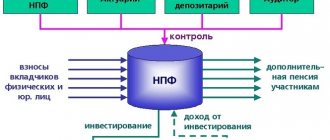What will happen to pensions in 2020?
- insurance pensions have been increased by 6.6% since January. This indexation exceeds the level of expected inflation. Pensioners who do not work have the right to indexation. The average increase will be 1000 rubles. Since pension amounts are individual, the January increase will differ from the arithmetic average,
- state pensions will increase in February 2020 by 3.8%,
- indexation of social pensions by 7% is planned from April 2020;
- The insurance pension is expected to be adjusted in August. Occurs at the expense of contributions transferred to the personal account of a working citizen. The recalculation is of an undeclared nature and depends only on the level of accrued contributions, directly proportional to wages. There will be no recalculation if the employer did not make contributions to the Pension Fund. Unofficial work does not increase your pension. The law limits the August increase to three points. The cost of the pension coefficient in 2020 will be 93 rubles,
- from October 1, 2020, the pay of military personnel should be indexed. Representatives of other law enforcement agencies and pensioners of these departments will also receive increased payments.
Payments that a working pensioner can receive
The Pension Fund exercises strict control over the receipt of insurance premiums. If the employer transferred insurance premiums for a pensioner as for an employee, the pension will be recalculated.
To the point! Legal ways to increase your pension.
Regardless of the form of the contract , the obligation to provide information about employed pensioners lies with the employer. Every current month, before the 15th day, the employer is obliged to inform the Pension Fund of the Russian Federation about its employees using the SZV-M form. Based on these data, the Pension Fund collects and analyzes information on the need for indexation.
According to the law, a pensioner has the right, but not the obligation, to provide information about his employment.
If you quit and get a job again
Since 2020, the planned indexation of labor pensions has ceased. But only for working pensioners. Missed indexation factors will be applied after dismissal. This is a provision of law. And it is mandatory.
But working pensioners have lost their peace. After all, no one wants to lose their pension. It’s scary not having time to pay off work and make the desired recalculation.
What if the rumors turn out to be true and the recalculation for retiring pensioners is suddenly cancelled?! Going to the PF customer service for clarification does not reassure you... It’s good to be a recipient of a state pension. For them, the fact of work does not affect the possibility of indexing.
Are changes awaiting us?
Indexation in 2020
Pension payments will increase:
- non-working recipients of labor pensions,
- social payments,
- state pensions,
- labor pensions for working pensioners,
- pensioners of law enforcement agencies.
Changes in the procedure for providing social surcharges - “rural” surcharge
Increase in pensions for persons with extensive rural experience (30 years or more). The fixed amount of the old-age or disability insurance pension will increase by 25%. A mandatory requirement is to live in a village.
What happens to your pension if you get a job again?
Workers are worried that they may lose the opportunity to index their pensions from 2020. The most enterprising ones have found a way out of the situation: they terminate the employment relationship.
An undeclared increase in pension is made taking into account the missing indexation coefficients. And the person has an indexed pension. If he gets a job, the new pension will not be reduced, since recalculation is not provided for by law.
Of course, anyone can use this trick to increase their pension, but there is a risk of remaining unemployed. After all, not every employer will rehire a person of retirement age, but will prefer a younger employee.
Pros and cons of employment
For a pensioner, going back to work will bring a number of benefits:
- Additional leave at your own expense up to 14 days. Disabled pensioners have the right to leave up to 35 days, and WWII veterans – up to 60 days.
- Preferential medical care: free examination without a queue, free dental prosthetics, 50% discount on medicines for working veterans.
- Dismissal without the need to work 14 days.

Going to work deprives the pensioner of indexation of the insurance part of the pension, in some cases - social benefits, as well as:
- payments for transportation costs to the place of the sanatorium-resort holiday;
- subsidies for low-income dependent care.
Employment of a pensioner: registration, advantages, disadvantages
- passport;
- retirement certificate;
- documents on received education and advanced training;
- registration certificate with the Pension Fund of Russia;
- work book;
- medical certificate confirming passing a professional commission;
- TIN, if available;
- salary certificate from the last workplace.
Former military personnel have priority rights when hiring for civilian jobs. They are also provided with travel benefits if they are sent to a sanatorium or medical institution.
Often asked
What to do if a pensioner applying for a job does not have a work book?
Depending on the situation, there may be several options:
- the work book is lost - on the basis of the application of the person being hired, issue a new one;
- the work book is located in the personnel department of the main place of work - ask for a certificate from another employer and draw up a part-time contract;
- draw up a civil law contract (or a work contract), explaining to the employee that vacation and sick leave will not be paid.
How to hire a disabled employee?
The law prohibits establishing restrictions on the right to employment (Article 3 of the Labor Code of the Russian Federation) and requiring documents in addition to the mandatory list established by Article 65 of the Labor Code.
Therefore, the employee may or may not present a certificate of disability. He can present an ITU certificate and an Individual Rehabilitation Program if it is necessary to provide special working conditions. Then he will have the benefit of additional unpaid leave, like a disability pensioner.
But the accountant will have to keep records of days of incapacity for work, since there is a limit on benefits paid by the Social Insurance Fund (Article 6 of Law No. 255-FZ).
The law prohibits any type of discrimination in the employment of citizens.
The constitutional right to work allows pensioners to use both their experience and their knowledge for the benefit of society. And additional contributions from the employer help increase the Pension Fund budget.
Office work

Russian legislation allows women to retire at 55 and men at 60. And the specifics of some professions allow earlier deadlines for receiving a pension.
Since this age is far from advanced, and some who have reached this age admit that they still have enough energy and, moreover, have a “second wind,” the need often arises to employ “young retirees.”
This article will discuss some of the nuances of hiring this category of citizens.
Payments and settlement
When a working pensioner is dismissed , all payments due to him are made on a general basis and include :
- Wages for actual days worked.
- Compensation for unused vacation (calculated based on average daily earnings for the last year).
In situations where a pensioner is dismissed due to staff reduction or liquidation of an enterprise, the following is added to all due payments :
- One month's severance pay.
- Compensation if the administration is unable to provide an alternative place of work.
REFERENCE. For some categories of workers who worked in particularly difficult conditions, compensation payments can be extended up to six months.
More information about what payments are due upon dismissal of a working pensioner can be found here.
What else to pay attention to
When registering an employee for a pension, we also recommend paying attention, in particular, to the following:
- The employer is not obliged to arrange a pension for the employee (despite the fact that in practice some employees require this from the HR and accounting departments). However, the employer can do this (Part 3 of Art. Federal Law dated December 28, 2013 No. 400-FZ). For such a service, it is necessary to conclude an appropriate agreement with the Pension Fund;
- The SZV-STAZH form should be submitted to the Pension Fund of the Russian Federation, including for employees with whom civil contracts have been concluded, if insurance premiums are accrued for remuneration under such contracts;
- Employees have the right to contact their employer for confirmation of length of service. Such certificates are usually required if the entry in the work book was not certified by a signature or seal, or in the event that Pension Fund employees discovered errors or inaccuracies. Certificates will also be required when applying for an early pension;
- An employee's retirement age does not entail his dismissal. And for the dismissal of persons of pre-retirement age (it begins 5 years before the onset of retirement age), criminal liability is provided (see “The law on criminal liability for the dismissal of workers of pre-retirement age has been adopted”);
- If an employee wishes to resign “due to retirement,” then the employer is obliged to terminate the employment contract within the period specified in the employee’s application (Part 3 of Article of the Labor Code of the Russian Federation). In this case, the employee must not notify the employer of his desire to terminate the employment relationship at least two weeks before dismissal.
Summary
Changes in the country's pension legislation do not leave anyone indifferent. How to react to changes and what conclusions need to be drawn?
Compared to their peers who left work, working pensioners find themselves in a more advantageous position financially. They receive both a pension and a salary. But pensions are not indexed and pension payments become lower than they could be.
It turns out that every month a person loses part of his pension. This loss cannot be compensated.

Excited pensioners who continue to work turn to the Pension Fund. Everyone asks the usual questions:
- do you need to quit urgently so as not to lose the missing indexation coefficients,
- when is it better to quit
- How long after dismissal can you go back to work?
- Will the new size remain the same during employment?
It is clear that you can decisively eliminate the source of stress, leaving everyday work in the past. But most of our elderly compatriots work to increase their income, because it is extremely difficult to live on a pension.
Pensioners occupy vacant jobs, becoming competitors for young people. But if an older worker is of interest to the employer, then they will save the vacancy for a long-time employee and rehire him in a month.
We generate a certificate of earnings
To calculate a pension, information is needed on the average monthly earnings of the future pensioner. Quite often, the Pension Fund takes this data from its personalized accounting database. For the calculation, data on earnings for 2000-2001, which were submitted as part of personalized reporting during that period, are suitable (Article 30 of Law No. 173-FZ). However, in some cases, the employee will need to prove income. So, he may need a certificate of his earnings for any five consecutive years before January 1, 2002. For such a certificate, he can contact his employer (current or former). The certificate is issued under the following conditions:
- during the confirmed period, the employee worked and received a salary (or if the employer is the legal successor of an already liquidated company);
- the period until the employee is registered as an insured person in the compulsory pension insurance system is confirmed (that is, in fact, until the employee receives a pension insurance certificate).
Please note that it is not at all necessary that the certificate cover a five-year period. If a person often changes jobs, then for a pension he can collect several certificates over short periods from different employers, in order to, as a result, cover 60 months.
If an employee contacts you for such a certificate, it must be issued no later than three days from the date of receipt of the application (Article of the Labor Code of the Russian Federation). There is no single form of certificate, so you can create it in any form.









